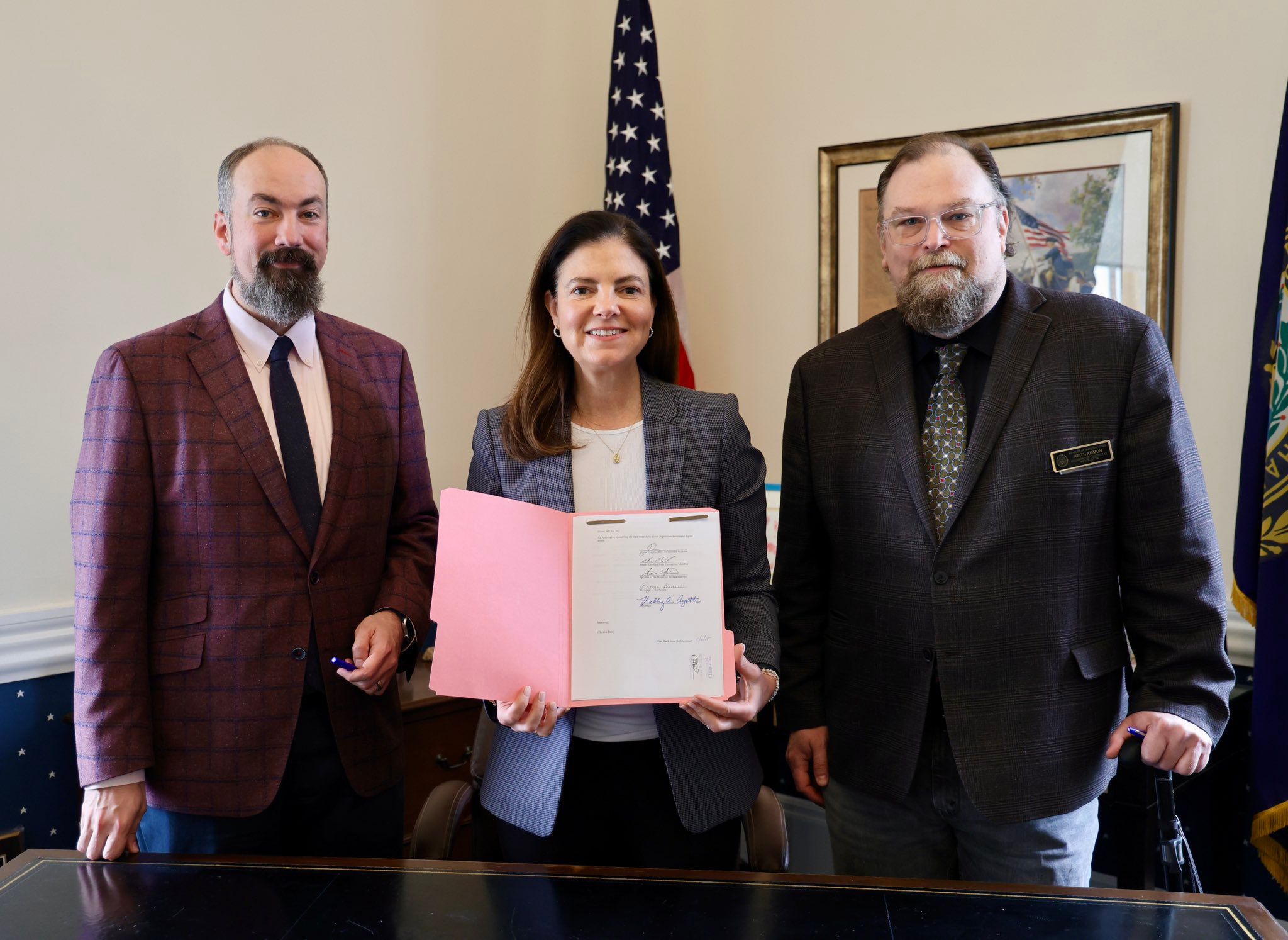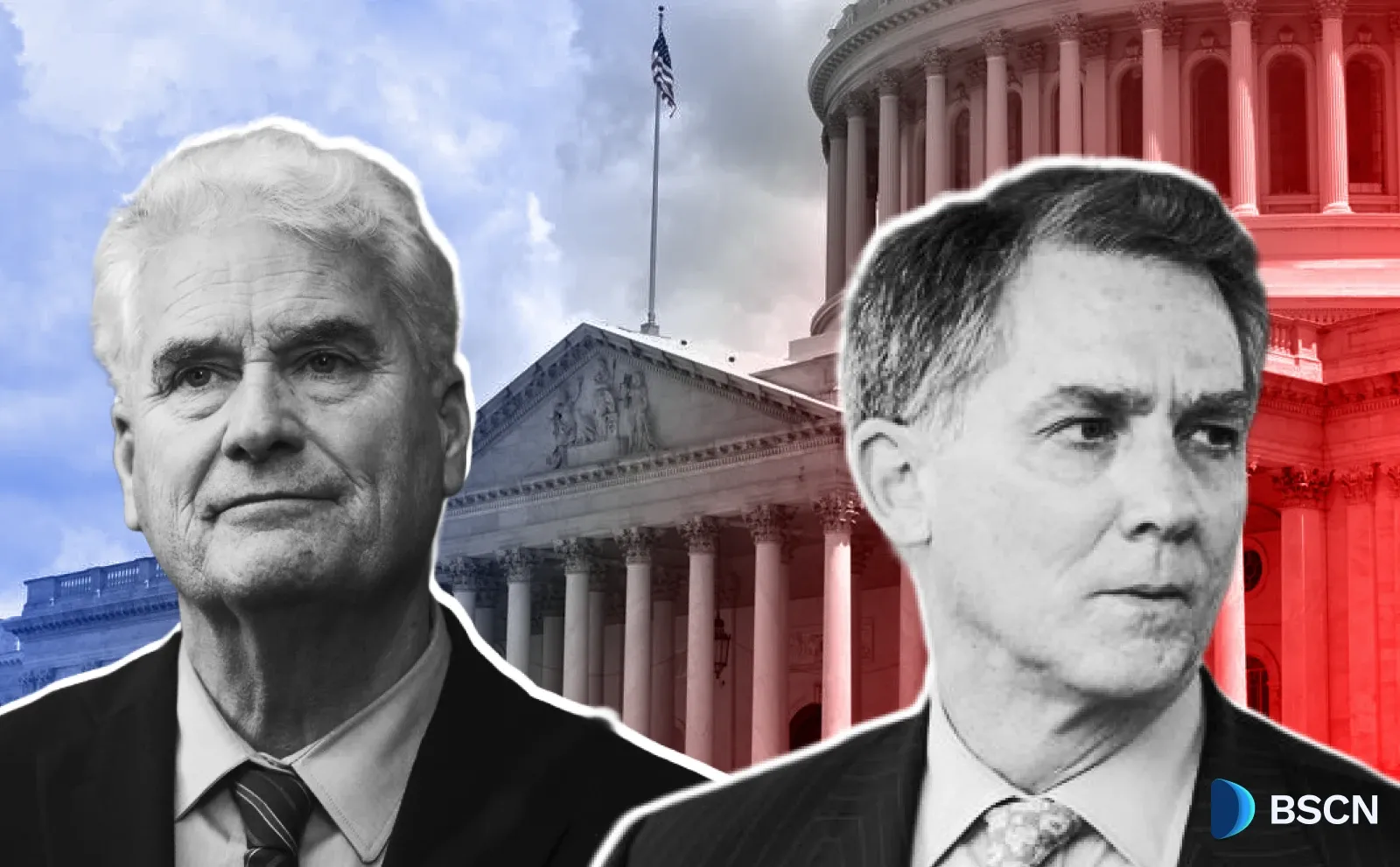New Hampshire Becomes First US State to Create a Bitcoin Reserve Fund

New Hampshire has become the first U.S. state to pass a Bitcoin Reserve Bill into law, authorizing the state treasurer to invest up to 10% of public funds in Bitcoin and precious metals.
Soumen Datta
May 7, 2025
Table of Contents
In a first-of-its-kind development, New Hampshire has become the first U.S. state to legally authorize the creation of a Bitcoin reserve, cementing its place at the forefront of digital asset innovation in the country.
Governor Kelly Ayotte signed House Bill 302 (HB 302) into law, enabling the state to allocate a portion of its public funds into Bitcoin and other qualified assets.
“New Hampshire is once again First in the Nation!” Governor Ayotte declared on X, celebrating the passage of the bill. With this legislation, New Hampshire positions itself as a trailblazer in crypto-friendly financial governance, leaving behind states that have either stalled or backtracked on similar legislation.

What Does the Bitcoin Reserve Bill Actually Do?
HB 302 permits up to 5% of the state's general funds to be invested in precious metals and digital assets with a market cap of over $500 billion. As of now, the only digital asset meeting that threshold is Bitcoin.
This law grants the New Hampshire state treasurer the ability to hold these assets either directly through self-custody or through secure third-party custody solutions, including exchange-traded products. In simpler terms, the state can buy Bitcoin and either store it securely on its own or use regulated platforms to manage the assets.
The bill goes into effect 60 days after its signing, making New Hampshire the first U.S. jurisdiction with a formal legal structure for holding Bitcoin as a state reserve.
A Blow to Other States' Efforts
While New Hampshire celebrates a win for crypto legislation, other U.S. states have seen their own efforts fall short.
- Arizona passed a similar bill through its state House, only for it to be vetoed by Governor Katie Hobbs in May.
- Florida recently withdrew two crypto reserve bills, halting its progress entirely.
- Montana, Wyoming, North Dakota, and Pennsylvania have all failed to advance similar bills past early stages.
Why This Move Matters
The idea of state-held Bitcoin reserves has been gaining momentum in crypto circles for years. Advocates argue that Bitcoin offers a hedge against inflation and fiat instability, especially in an age of ballooning national debt and rising interest rates. Until now, most of these arguments stayed theoretical or were limited to federal-level debates.
But New Hampshire has taken action where the federal government and other states have hesitated.
This bill offers a real-world model for other jurisdictions looking to follow suit. It lays out a clear process for investment, custody, and risk management—essential factors for mainstream financial integration.
Federal vs. State: A Quiet Race for Bitcoin Leadership
The federal government has flirted with similar concepts, though progress has been mixed.
Former President Donald Trump signed an executive order to create a Digital Asset Stockpile and Strategic Bitcoin Reserve, but this initiative has largely been limited to using already-owned government BTC—with no new acquisitions guaranteed.
Meanwhile, Senator Cynthia Lummis is leading efforts in Congress with the BITCOIN Act, a proposal that could allow the U.S. to expand its Bitcoin holdings through civil and criminal forfeiture mechanisms. The act is still under review by the Senate Banking Committee.
Despite these developments, New Hampshire’s move is more aggressive and concrete, as it includes direct investment of public funds. That alone puts the state miles ahead of the federal government and other states.
The passage of HB 302 is being hailed by Bitcoin supporters as a historic return to sound money principles.
Satoshi Action Fund, a pro-Bitcoin nonprofit, wrote:
"History just tilted toward sound money in the 'Live Free or Die' state. Moments ago, the New Hampshire Governor signed HB 302 into law, creating the nation's first Bitcoin & Digital Assets Reserve Fund."
What Happens Next?
Over the next two months, New Hampshire’s treasury will begin preparing the operational steps needed to make its first investments under this new law. That includes setting up custody frameworks, evaluating ETF options, and creating guidelines for managing risk.
If executed properly, this could become a blueprint for other states. Proposals in Illinois, Maryland, Michigan, Texas, and Arizona are already gaining attention, and New Hampshire’s law may encourage them to take bolder steps.
Even internationally, this move could inspire municipalities and sovereign funds to take a closer look at Bitcoin as part of their strategic reserves.
Read Next...
Disclaimer
Disclaimer: The views expressed in this article do not necessarily represent the views of BSCN. The information provided in this article is for educational and entertainment purposes only and should not be construed as investment advice, or advice of any kind. BSCN assumes no responsibility for any investment decisions made based on the information provided in this article. If you believe that the article should be amended, please reach out to the BSCN team by emailing [email protected].
Author
 Soumen Datta
Soumen DattaSoumen has been a crypto researcher since 2020 and holds a master’s in Physics. His writing and research has been published by publications such as CryptoSlate and DailyCoin, as well as BSCN. His areas of focus include Bitcoin, DeFi, and high-potential altcoins like Ethereum, Solana, XRP, and Chainlink. He combines analytical depth with journalistic clarity to deliver insights for both newcomers and seasoned crypto readers.
Crypto Project & Token Reviews
Project & Token Reviews
Comprehensive reviews of crypto's most interesting projects and assets
Learn about the hottest projects & tokens

















